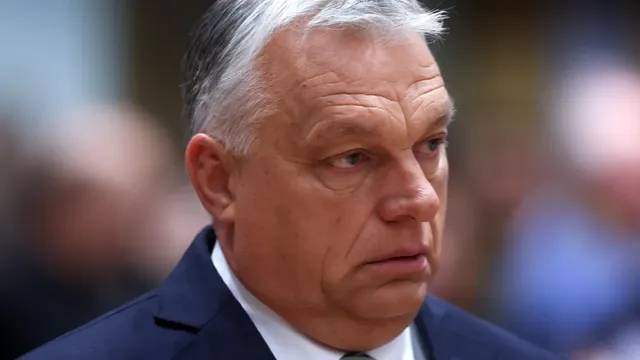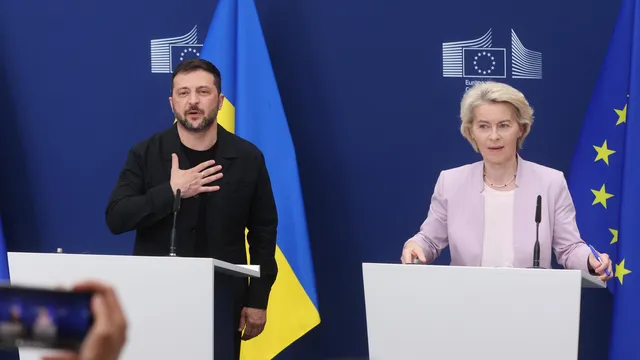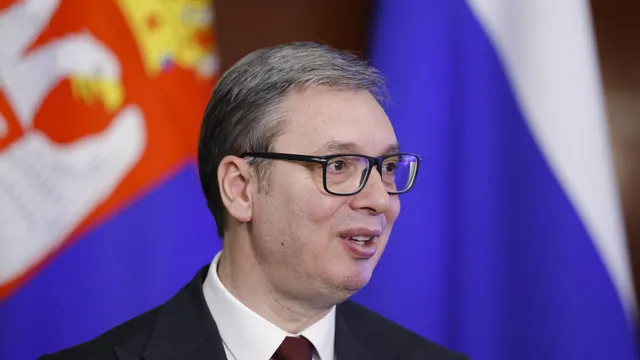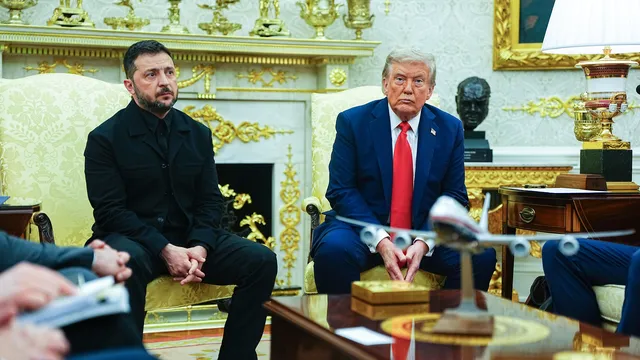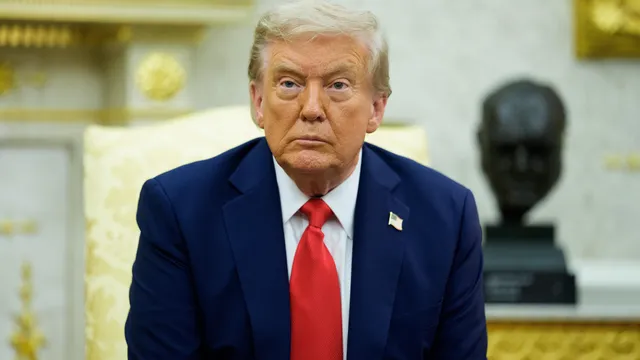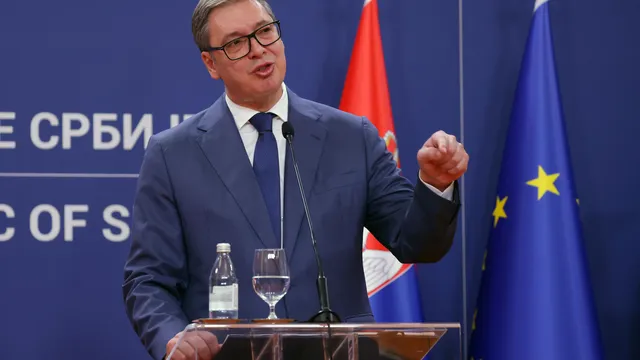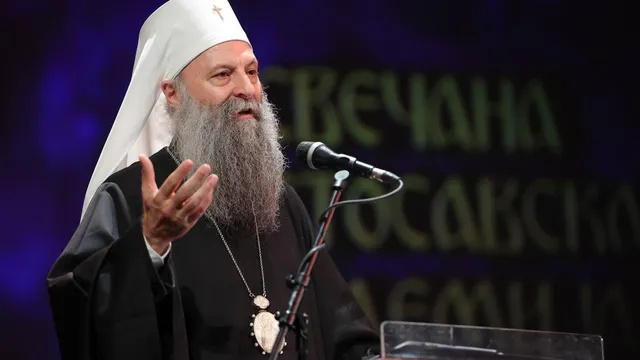The Hungarian authorities have banned the famous Ukrainian commander Robert Brovdi from entering the country.
He is the commander of the Ukrainian unmanned aerial vehicle forces, who led the attack on a Russian oil pipeline supplying Hungary with oil. The crisis is even more acute because Robert Brovdi is of Hungarian origin.
Viktor Orbán attacks Ukrainian military hero. Robert Brovdi, a Ukrainian military officer of Hungarian origin, was declared persona non grata in Hungary on August 28. The man sometimes referred to as Ukraine's "Mr. Drone" is accused of organizing "an attack on Hungarian sovereignty," Hungarian Foreign Minister Péter Szijjártó wrote on X.
In this case, Viktor Orbán's Hungary condemns the bombing of the Druzhba oil pipeline by drones under the command of Robert Brovdi. Ukraine did indeed damage this Russian oil pipeline—the longest in the world (4,000 km)—during air strikes on the Russian region of Bryansk on August 13. At first glance, this has nothing to do with Hungarian sovereignty, except that this attack forced Russia to halt the operation of this pipeline, which supplies oil to Hungary and Slovakia, for several days. The two countries benefit from a European exemption from the ban on purchasing Russian oil, and Budapest considers this pipeline to be critical infrastructure for its economy. The Druzhba pipeline "supplies about 65% of the crude oil imported by Hungary," points out Esther Simon, a specialist in Hungary and international relations at Nottingham Trent University (United Kingdom).
For Kiev, Hungary's reaction is "shameful." "What a shameful signal at a time when the Russian terrorist state is conducting a brutal attack [mass bombing of the Ukrainian capital on August 28, ed.]. Péter Szijjártó, if for you an oil pipeline is more important than the lives of Ukrainian children, Hungary is on the wrong side of history," replied Andriy Sibyha, Ukraine's Minister of Foreign Affairs.
Ukraine reacted so sharply to the sanction imposed by Budapest because it affects a person considered a military hero by Kyiv. On May 8, Volodymyr Zelensky awarded Robert Brovdi the Hero of Ukraine medal.
"Robert Brovdi is one of the most popular commanders in Ukraine," says Rigo Nizhnikau, a Ukraine specialist at the Finnish Institute of International Affairs. In 2023, the Kiev Post newspaper named him one of the three most emblematic figures in the Ukrainian army because of his role in the army's adoption of drones and his eloquence on social media, where he is very active and has many followers.
Before becoming the face of Ukraine's drone strategy, the 49-year-old Brovdi was a successful entrepreneur in the field of agriculture. When the large-scale Russian invasion broke out in February 2022, he enlisted as a private and participated in the defense of Kyiv. He quickly decided that his entrepreneurial experience would be more useful if he used it in a different way, and he drew on his own funds to buy the first drones for the Ukrainian army from China.
He thus became one of the pioneers in the use of civilian drones by the army for reconnaissance purposes, but also as flying kamikaze bombs. Robert Brovdi formed a unit of drone pilots called "Magyar's Birds" — a nod to his Hungarian origins — which participated in most of the major battles in Ukraine and gained fame by posting videos of its exploits against Russian forces on social media.
In June, Volodymyr Zelensky promoted him to commander of the special forces specializing in drone warfare. In this capacity, he led operations such as the bombing of the Druzhba oil pipeline. "In Moscow's eyes, Robert Brovdi and his Magyar's Birds are a thorn in Russia's side, similar to the Azov battalion," Rigor Nizhnikau adds.
From the Kremlin, Vladimir Putin is surely watching with satisfaction as these European countries—Slovakia also criticized the attack on the oil pipeline—pounce on this emblematic figure of the drone war raging in Ukraine. But the experts interviewed by France 24 do not believe that "Viktor Orbán acted deliberately in Moscow's interests by imposing sanctions on Robert Brovdi," says Esther Simon.
For Rihard Nizhnikau, "the key aspect here is Robert Brovdi's Hungarian origin." The fact that a Ukrainian with ties to the Hungarian minority attacked a pipeline that is very important to Budapest "may have angered Viktor Orbán," says Michael Tumi, a specialist in populism in Central Europe at the University of Glasgow. This is indeed a serious blow to "the nationalist narrative that the prime minister is building around his status as 'king of the Hungarians,'" adds Michael Tumi. According to this expert, Viktor Orbán sees himself not only as the leader of Hungary, but also – potentially – as the leader of all Hungarians, which in the minds of the nationalists in his party "includes the territories lost during the Treaty of Trianon, signed in 1920 after the end of World War I."
Some of these territories are located in western Ukraine. This is especially true for Transcarpathia, the region where Robert Brovdi comes from. "Viktor Orbán has always positioned himself as a defender of the Hungarian minority living there, and has been mentioning it more and more publicly since the start of the Russian invasion of Ukraine," Esther Simon points out. The image of the Hungarian minority as a "boss" takes a hit "if one of its most prominent and well-known members in Ukraine, Robert Brovdi, does not hesitate to attack an oil pipeline important to Hungarian interests in the name of defending Ukraine," notes Rihor Nizhnikov.
Apart from this aspect, the economic impact of this attack has certainly stuck in the minds of the Hungarian authorities. "The government in Budapest suddenly realized that Ukraine has the means to make life more difficult for Viktor Orbán," notes Esther Simon. This is even more unacceptable to the prime minister, given that "the country is in a very precarious economic situation and does not need to fear for its energy security on top of everything else," argues Michael Tumi. Ultimately, even if the Hungarian reaction was not primarily aimed at pleasing Moscow, Russia will likely take advantage of it. In fact, while US President Donald Trump has committed himself to persuading his Hungarian "friend" to stop opposing negotiations on Ukraine's integration into the European Union, the Robert Brovdi affair "risks pushing the Hungarian prime minister toward intransigence," fears Rihor Nizhnikau. I BGNES

 Breaking news
Breaking news
 Europe
Europe
 Bulgaria
Bulgaria
